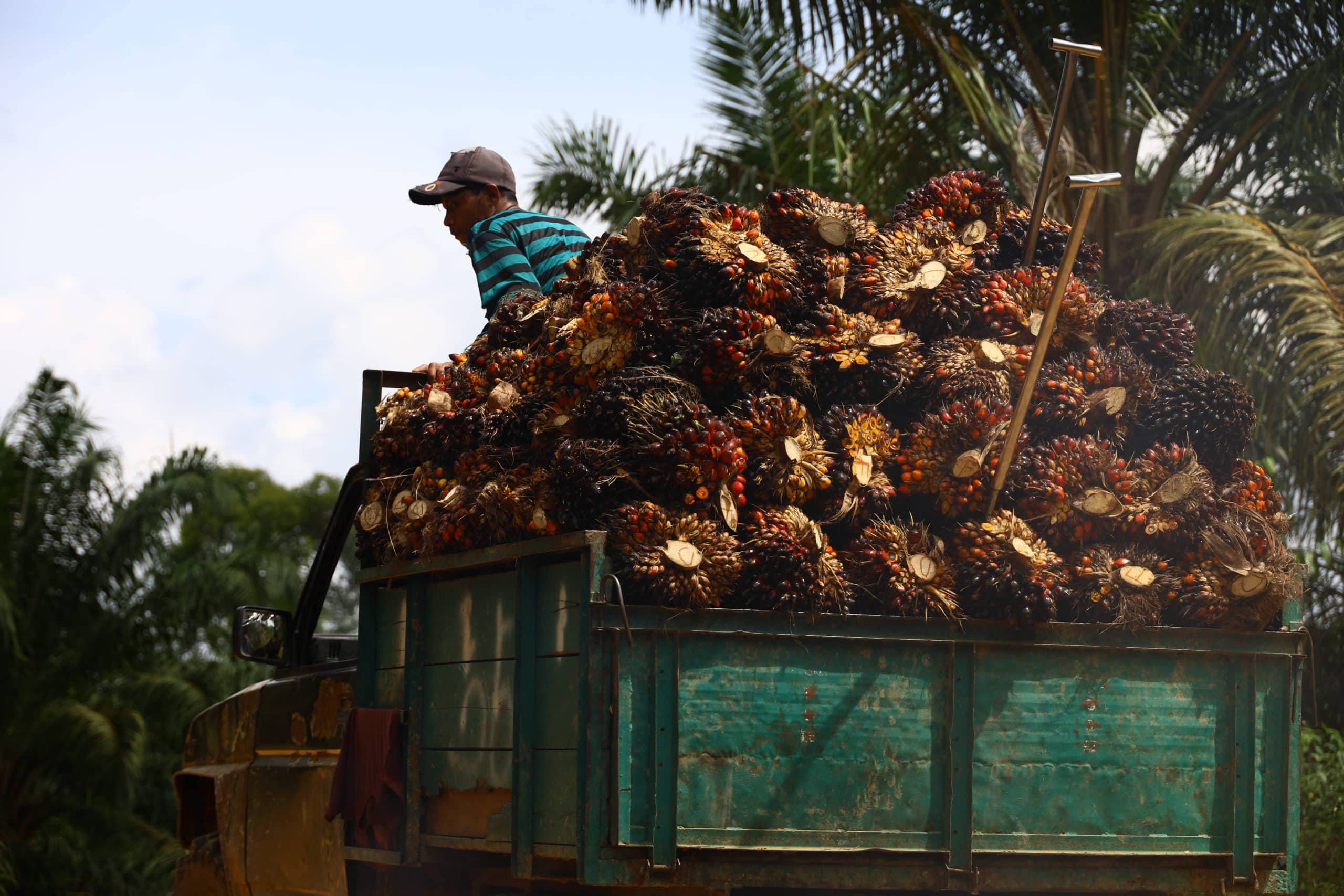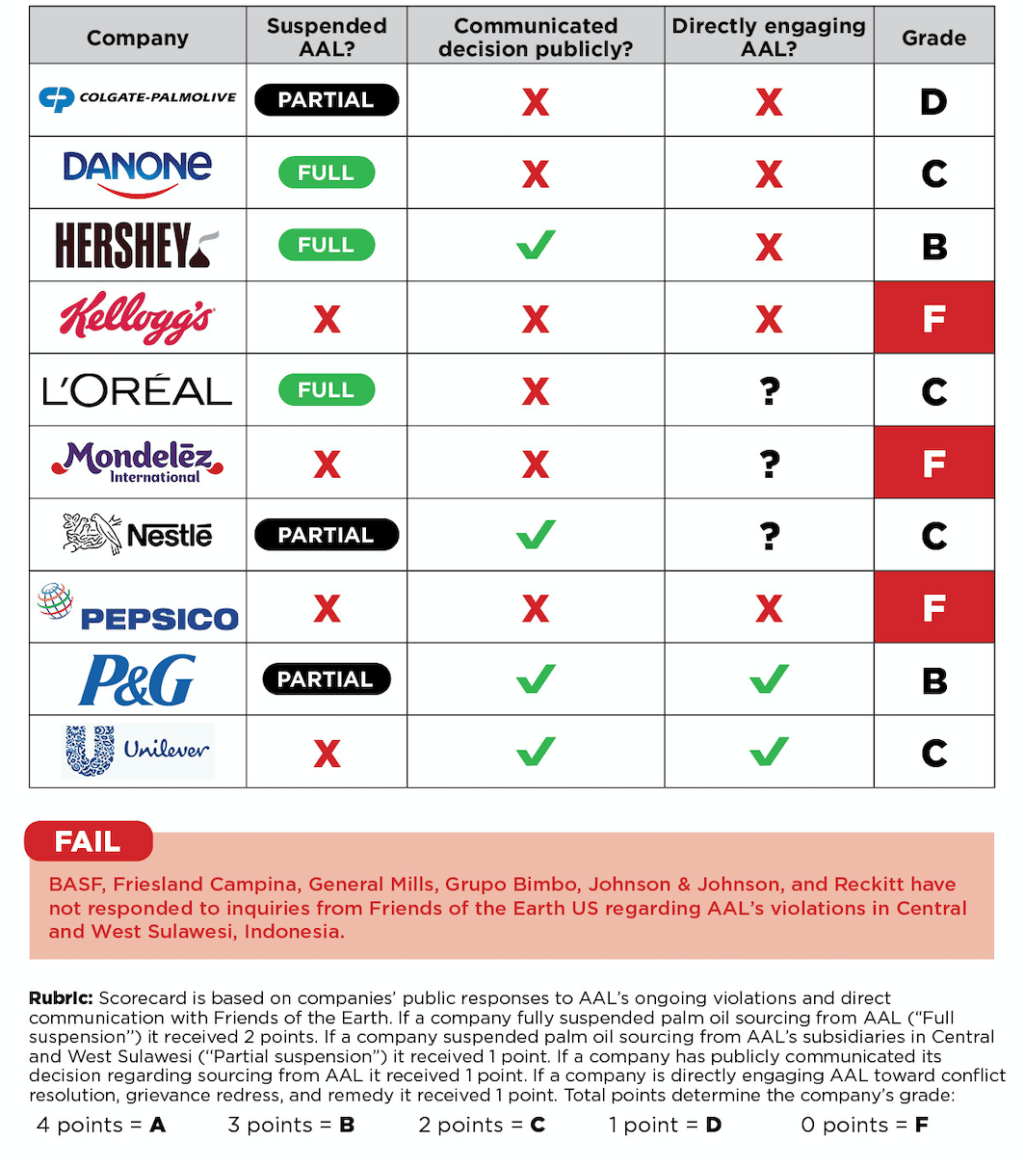- Home
- Forests
- Consumer goods companies’ responses to human rights and environmental violations by Astra Agro Lestari
Consumer goods companies’ responses to human rights and environmental violations by Astra Agro Lestari

Consumer goods companies’ responses to human rights and environmental violations by Astra Agro Lestari

Read our press release.
Astra Agro Lestari (AAL), Indonesia’s second largest palm oil producer, and its subsidiaries PT Agro Nusa Abadi (PT ANA), PT Lestari Tani Teladan (PT LTT) and PT Mamuang, are responsible for human rights and environmental violations in Central and West Sulawesi, Indonesia, including land grabbing, environmental degradation and criminalization of environmental human rights defenders. This scorecard assesses each consumer goods company’s response, or lack of response, to AAL’s ongoing human rights and environmental violations in Central and West Sulawesi.
The UN Guiding Principles on Business and Human Rights and the OECD Guidelines for Multinational Enterprises require companies to respect human rights, address rights violations in their value chains and provide remedy for adverse impacts. All 16 consumer goods companies linked to AAL and its subsidiaries are members of the Roundtable on Sustainable Palm Oil (RSPO) and have adopted No Deforestation, No Peat, No Exploitation (NDPE) policies, which commit them to ending deforestation and environmental destruction and respecting communities’ land rights – including the right to Free, Prior, Informed Consent – within their supply chains.
Following publication of a March 2022 report by WALHI and Friends of the Earth US documenting AAL’s abuses, Procter & Gamble commissioned an independent investigation that confirmed ongoing violations by AAL and its subsidiaries. In response, several consumer goods companies chose to suspend or ask their direct suppliers to suspend palm oil sourcing either from AAL as a whole or from AAL’s subsidiaries in Central and West Sulawesi. Suspensions are an important first step toward accountability but must be followed by efforts to advocate for an end to ongoing conflicts, meaningful redress of grievances, and remedy for harm done. Affected communities in Central and West Sulawesi are demanding that AAL return land that was taken without communities’ consent, provide compensation for loss of livelihoods and negative environmental impacts and issue a formal apology.
No consumer goods company has fulfilled its human rights obligations by fully suspending palm oil sourcing from AAL, publicly communicating its decision and directly engaging the company to achieve meaningful grievance redress and remedy for harm done. Disappointingly, most consumer goods companies stated that their engagement efforts ended with their direct suppliers, while AAL is an indirect palm oil supplier. The complex nature of palm oil supply chains serves to shield downstream consumer goods companies from addressing human rights violations carried out by their upstream suppliers. However, international human rights standards require companies to redress human rights violations throughout a company’s value chain. While the consumer goods companies named here increasingly recognize the importance of supply chain transparency, most still fail to achieve transparency regarding their handling of serious human rights and environmental violations in their value chains.
For more information:
